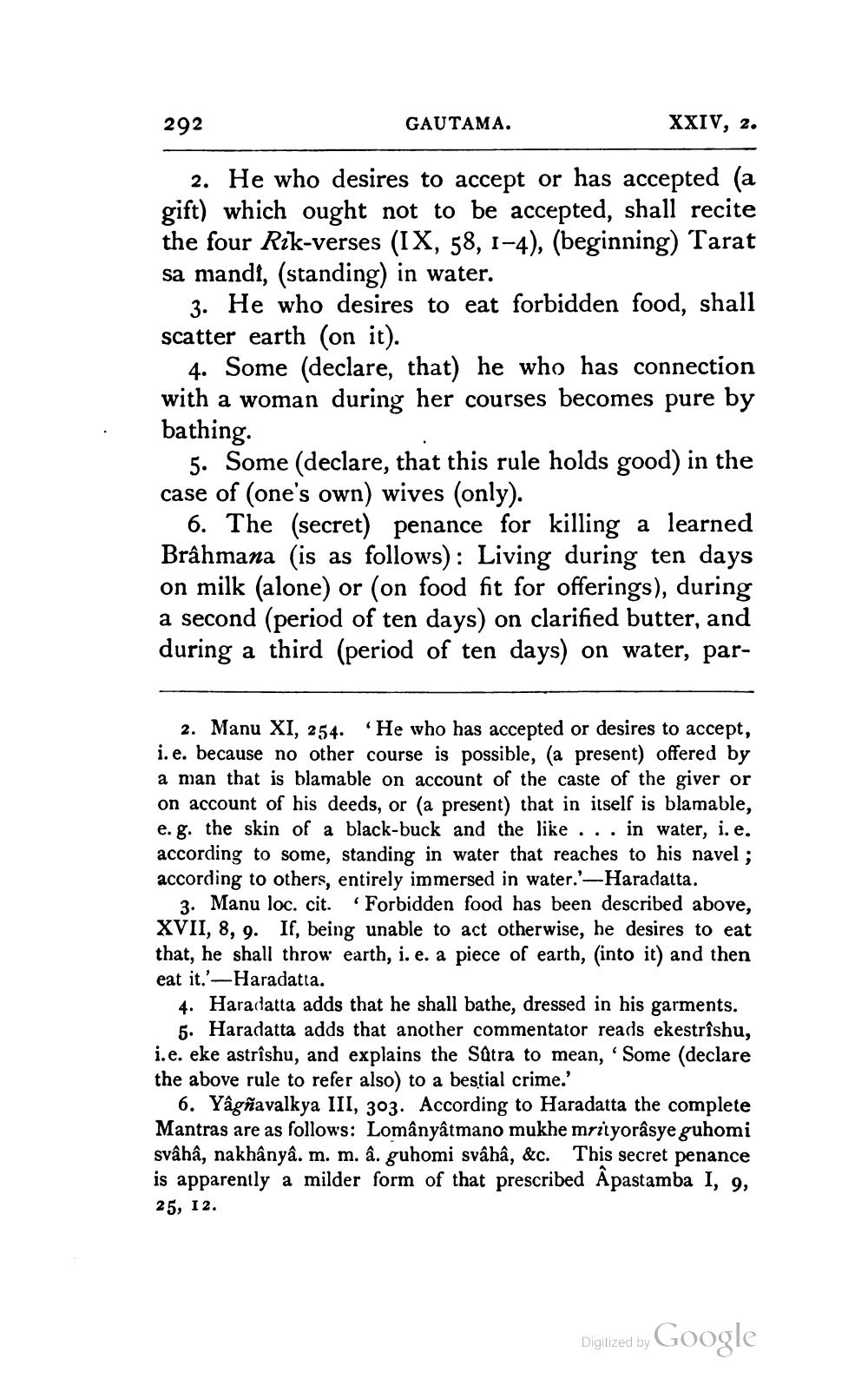________________
292
GAUTAMA.
XXIV, 2.
2. He who desires to accept or has accepted (a gift) which ought not to be accepted, shall recite the four Rik-verses (IX, 58, 1-4), (beginning) Tarat sa mandi, (standing) in water.
3. He who desires to eat forbidden food, shall scatter earth (on it).
4. Some (declare, that) he who has connection with a woman during her courses becomes pure by bathing.
5. Some (declare, that this rule holds good) in the case of (one's own) wives (only).
6. The (secret) penance for killing a learned Brahmana (is as follows): Living during ten days on milk (alone) or (on food fit for offerings), during a second (period of ten days) on clarified butter, and during a third (period of ten days) on water, par
2. Manu XI, 254. 'He who has accepted or desires to accept, i.e. because no other course is possible, (a present) offered by a man that is blamable on account of the caste of the giver or on account of his deeds, or (a present) that in itself is blamable, e. g. the skin of a black-buck and the like. . . in water, i. e. according to some, standing in water that reaches to his navel; according to others, entirely immersed in water.'-Haradatta.
3. Manu loc. cit. 'Forbidden food has been described above, XVII, 8, 9. If, being unable to act otherwise, he desires to eat that, he shall throw earth, i. e. a piece of earth, (into it) and then eat it.'-Haradatta.
4. Haradatta adds that he shall bathe, dressed in his garments.
5. Haradatta adds that another commentator reads ekestrîshu, i.e. eke astrîshu, and explains the Sutra to mean, 'Some (declare the above rule to refer also) to a bestial crime.'
6. Yâgnavalkya III, 303. According to Haradatta the complete Mantras are as follows: Lomânyâtmano mukhe mrityorâsye guhomi svâhâ, nakhânyâ. m. m. â. guhomi svâhâ, &c. This secret penance is apparently a milder form of that prescribed Âpastamba I, 9,
25, 12.
Digitized by Google




